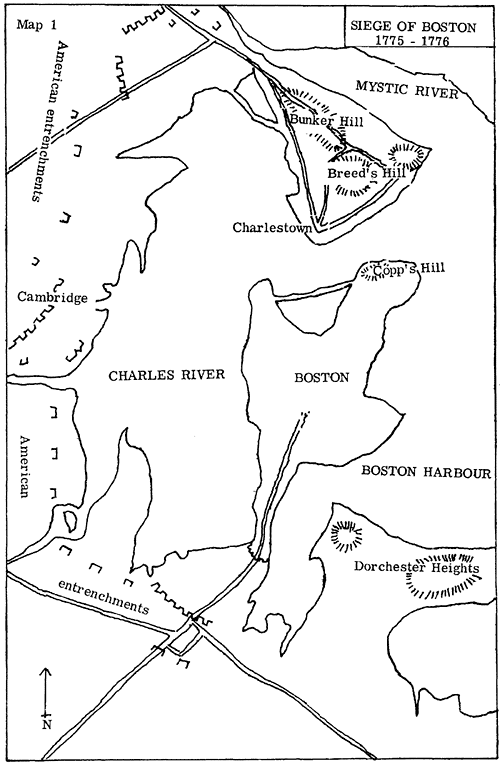The Battle of Bunker Hill, 1775
![Bunker's Hill [Bunker Hill] near Boston, Massachusetts](/ManuscriptsandSpecialCollections/Images-Multimedia/eLearning/Conflict/America/06-2864p_bunkershill.jpg)
Bunker's Hill [Bunker Hill] near Boston, Massachusetts, in 1775
From The Popular History of England by Charles Knight, Vol. VI (London: Bradbury and Evans, 1860)
In the first months of the siege of Boston neither side attempted to occupy and fortify either Charlestown or the Dorchester Peninsula which dominated Boston harbour.
On the 13th June the Americans learned that the British intended to do so, and to forestall them occupied Bunker and Breed Hill and began to erect fortifications. The British Generals decided that for their own safety it was necessary to clear the Americans off the Hills. On the morning of the 16th June General Gage called a council of war, and rejected both Sir Henry Clinton's pieces of advice, that the attack be mounted at dawn, and that he with 500 troops be landed in the rear of the American position to cut off any possibility of retreat. The plan adopted was a frontal assault on the American position.
After a heavy naval bombardment British troops were landed on the peninsula at 1.00 p.m. on the 17th. The British regulars marched straight up the Hill, where they were met by heavy and accurate fire from the American defenders, who were protected by trenches and breastworks. The first attack failed, as did the second one. Reinforcements had to be summoned from Boston to help.
For a time the battle seemed to be going badly for the British, but Clinton, with his commander's approval crossed over, rallied the remnants of the first two attacks, and was able to support the third attack which overwhelmed the American defences and took the position.

Although a British victory, there were about 1,000 British casualties in the 2,500 troops engaged. The battle of Bunker Hill showed the British that they were in for a fight, and showed the American Congress that American militia properly led and trained would be a match for the regulars. The immediate threat to the British garrison of Boston was lifted, but the siege continued and General Gage could not consider any further military action until he had been reinforced from England. Document 1 is Sir Henry Clinton's account of that day to Charles Mellish.
Next page: Sir Henry Clinton's War, Long Island and New York, 1776-1777